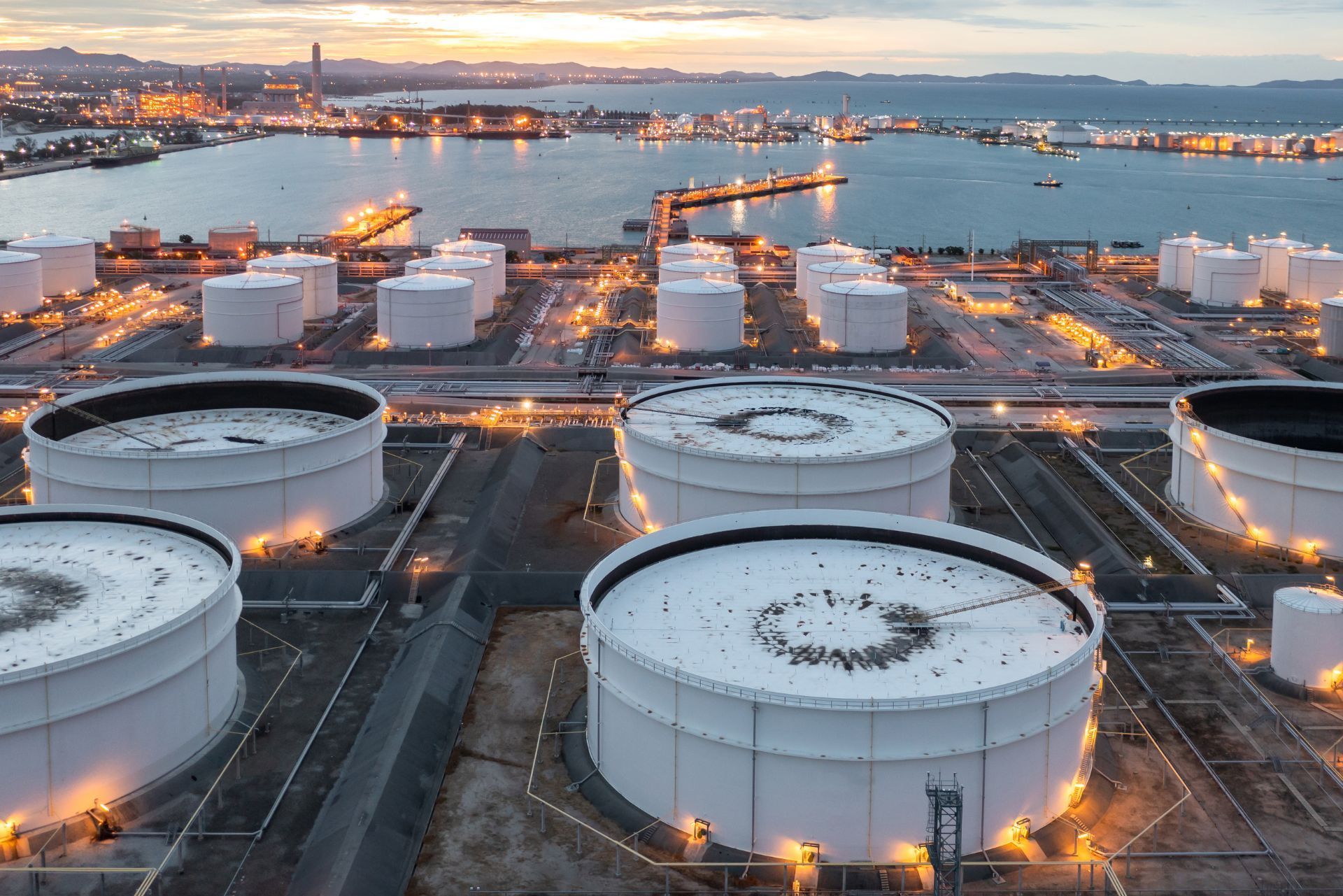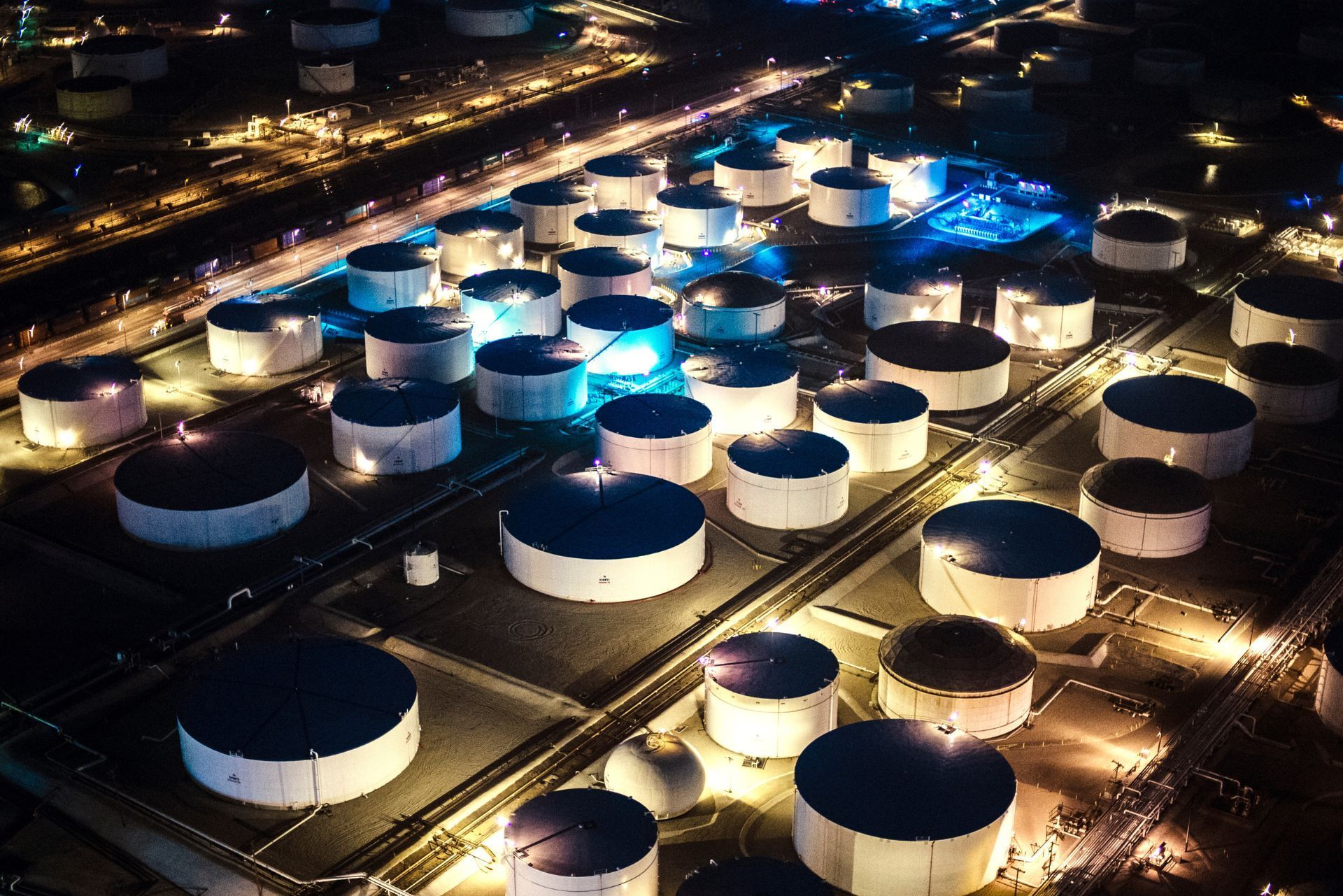Supply Chain Disruption Insurance For Oil, Gas, and Energy Businesses

or call us: (281) 823-8262
Top 3 Recommended Policies

The oil, gas, and energy sectors are the backbone of the global economy, powering industries, transportation, and households worldwide. However, these industries face unique challenges that can disrupt their complex supply chains, leading to significant operational and financial risks. From aging infrastructure to geopolitical tensions, supply chain disruptions have become a critical concern, prompting many companies to seek specialized insurance solutions. This article explores the essentials of supply chain disruption insurance tailored for oil, gas, and energy businesses, helping stakeholders understand its importance, coverage, and how it can safeguard their operations.
In 2020, a staggering 82% of energy companies reported experiencing moderate to severe supply chain disruptions, highlighting the vulnerability of these sectors to external shocks and internal inefficiencies. Accenture’s research underscores the urgency for robust risk management strategies, including insurance, to mitigate the impact of such disruptions.
Understanding Supply Chain Disruptions in Oil, Gas, and Energy
Supply chain disruptions in the oil, gas, and energy industries stem from a variety of factors, ranging from equipment failures and workforce challenges to geopolitical tensions and market volatility. One of the most pressing issues is the aging infrastructure that underpins these sectors. For instance, the average age of the world’s oil drilling rigs reached approximately 27 years in 2023, which directly affects operational reliability and maintenance costs. This aging infrastructure not only leads to increased downtime due to repairs but also poses significant safety risks, potentially endangering workers and the surrounding environment. As companies grapple with these challenges, the need for innovative solutions becomes paramount to ensure safe and efficient operations.
Moreover, geopolitical tensions continue to exacerbate supply chain instability. In 2022, about 70% of oil and gas companies reported disruptions linked to geopolitical factors, such as trade restrictions and regional conflicts. These challenges not only delay projects but also increase costs and risk exposure, threatening the profitability and sustainability of operations. For example, sanctions imposed on key oil-producing nations can lead to sudden shortages, forcing companies to scramble for alternative suppliers or adjust their production strategies. The ripple effects of such disruptions can be felt throughout the global economy, affecting everything from fuel prices to energy security.
Given these complexities, companies must adopt comprehensive strategies to manage supply chain risks effectively. This includes investing in modernizing equipment, workforce training, and leveraging technology to improve transparency and responsiveness. Advanced analytics and real-time monitoring systems can provide critical insights into supply chain dynamics, enabling companies to anticipate disruptions and respond proactively. Furthermore, fostering strong relationships with suppliers and stakeholders can enhance collaboration and resilience, ensuring that organizations are better equipped to navigate the uncertainties of the energy landscape.
Additionally, sustainability has emerged as a crucial factor in supply chain management within these industries. As environmental regulations tighten and public scrutiny increases, companies are under pressure to adopt greener practices. This includes not only reducing carbon footprints but also ensuring that supply chains are ethically sourced and environmentally responsible. By embracing sustainable practices, companies can not only mitigate risks associated with regulatory compliance but also enhance their brand reputation and appeal to environmentally conscious consumers. The integration of sustainability into supply chain strategies is becoming a competitive differentiator, as stakeholders increasingly prioritize environmental, social, and governance (ESG) factors in their decision-making processes.

What Is Supply Chain Disruption Insurance?
Supply chain disruption insurance is a specialized form of coverage designed to protect businesses from financial losses arising from interruptions in their supply chain. For oil, gas, and energy companies, this insurance can cover a wide range of risks, including delays in the delivery of critical equipment, production halts due to supplier insolvency, and increased costs from rerouting logistics.
Unlike traditional property or general liability insurance, supply chain disruption insurance focuses specifically on the indirect losses caused by interruptions in the flow of goods, materials, or services. This can include lost revenue, additional expenses to mitigate the disruption, and penalties for delayed project completion.
Considering the high capital expenditure (CAPEX) involved in energy projects, the impact of supply chain disruptions can be severe. According to Accenture, more than 20% of the oil and gas industry’s CAPEX growth plans were at risk due to supply chain issues in recent years. This highlights the critical role that disruption insurance plays in protecting investment and ensuring business continuity.
Moreover, the complexity of global supply chains has increased significantly, with many companies relying on a network of suppliers and manufacturers located across different countries. This interconnectedness means that a disruption in one part of the world can have cascading effects, impacting multiple stakeholders and leading to extensive delays. For instance, natural disasters, geopolitical tensions, or even pandemics can disrupt transportation routes or halt production, making it imperative for businesses to have a robust risk management strategy in place. Supply chain disruption insurance serves as a safety net, allowing companies to navigate these challenges with greater confidence.
In addition to traditional risks, emerging threats such as cyberattacks on supply chain networks are becoming increasingly prevalent. With the rise of digital technologies in logistics and inventory management, the potential for cyber vulnerabilities has grown. A successful cyberattack can lead to significant operational disruptions, making it crucial for companies to not only invest in
cybersecurity measures but also to consider how supply chain disruption insurance can mitigate the financial fallout from such incidents. This evolving landscape underscores the importance of comprehensive coverage that adapts to the changing nature of risks faced by modern businesses.
Key Risks Covered by Supply Chain Disruption Insurance
Supply chain disruption insurance policies for the oil, gas, and energy sectors typically cover a variety of risks, including but not limited to:
- Supplier Delays: Delays in the delivery of essential equipment or materials can halt production or delay project timelines.
- Equipment Failure: Aging infrastructure increases the likelihood of equipment breakdowns, which can disrupt operations.
- Geopolitical Risks: Sanctions, trade wars, or regional conflicts that affect supply routes or supplier availability.
- Natural Disasters: Events such as hurricanes, earthquakes, or floods that impact supply chain nodes.
- Cybersecurity Breaches: Increasingly, cyberattacks targeting supply chain systems can disrupt operations or compromise data integrity.
By covering these risks, supply chain disruption insurance helps companies manage uncertainty and maintain financial stability even when unforeseen events occur. Furthermore, the insurance can also provide a safety net that allows companies to invest in innovative technologies and processes, knowing they have a fallback plan in place. This is particularly crucial in the energy sector, where the transition to renewable sources and the adoption of advanced technologies can be capital intensive and fraught with risk.
Additionally, the insurance can foster a more resilient supply chain by encouraging businesses to conduct thorough risk assessments and develop contingency plans. Companies may find themselves better equipped to identify vulnerabilities within their supply chains, leading to improved relationships with suppliers and a more robust operational framework. This proactive approach not only minimizes potential losses but can also enhance a company's reputation in the market as a reliable partner, ultimately driving long-term growth and sustainability in an ever-evolving industry landscape.
The Importance of Managing Aging Equipment and Workforce
One of the unique challenges in the oil and gas industry is managing the aging process of both equipment and workforce. Allianz Global Corporate & Specialty (AGCS) emphasizes that how companies handle this aging process is crucial to minimizing risks and maintaining operational efficiency.
Older equipment is more prone to failure and may require more frequent maintenance, which can cause unexpected delays and costs. Additionally, an aging workforce may face skill shortages or increased health risks, impacting productivity and safety. These factors contribute to supply chain vulnerabilities that can trigger costly disruptions.
Insurance solutions that account for these specific risks can provide tailored coverage, helping businesses offset the financial impact of equipment breakdowns or workforce-related delays. Proactive asset management combined with insurance protection forms a robust defense against supply chain interruptions.
Moreover, the integration of advanced technologies such as predictive maintenance and data analytics can significantly enhance the management of aging equipment. By leveraging IoT sensors and machine learning algorithms, companies can monitor equipment health in real-time, allowing for timely interventions before failures occur. This not only extends the lifespan of machinery but also optimizes maintenance schedules, reducing downtime and associated costs. As for the workforce, investing in continuous training and development programs is essential. By upskilling employees and fostering a culture of knowledge transfer, organizations can mitigate the risks associated with an aging workforce, ensuring that critical skills are retained and passed on to younger generations.
Additionally, the oil and gas sector can benefit from implementing mentorship programs that pair experienced workers with newer employees. This approach not only helps in preserving institutional knowledge but also boosts morale and engagement among the workforce. As seasoned professionals share their insights and experiences, they contribute to a more resilient and adaptable team capable of navigating the complexities of modern operations. By addressing both equipment and workforce aging comprehensively, companies can create a sustainable operational framework that supports long-term growth and stability.

Emerging Technologies and Their Role in Supply Chain Resilience
Technological advancements are transforming supply chain management in the energy sector. One promising development is the use of blockchain technology, which can enhance transparency, traceability, and security across complex supply chains.
According to a study highlighted by Worldmetrics, implementing blockchain in supply chain management can reduce fraud and errors by up to 30%. This improvement not only streamlines operations but also mitigates risks that can lead to disruptions. By providing a decentralized ledger that records transactions in real-time, stakeholders can access accurate data, which fosters trust and collaboration among partners. This level of transparency is particularly crucial in the energy sector, where regulatory compliance and ethical sourcing are paramount.
Integrating such technologies with insurance policies can offer a comprehensive approach to managing supply chain risks. For example, insurers may offer incentives or premium discounts to companies that adopt blockchain or other digital tools, recognizing their role in reducing claim likelihood. Additionally, the incorporation of artificial intelligence (AI) and machine learning can further enhance supply chain resilience. These technologies can analyze vast amounts of data to predict potential disruptions, optimize inventory levels, and improve demand forecasting. By leveraging predictive analytics, companies can proactively address issues before they escalate, ensuring a more robust supply chain capable of withstanding unforeseen challenges.
Moreover, the Internet of Things (IoT) plays a pivotal role in this technological evolution. With IoT devices embedded in various stages of the supply chain, real-time monitoring of assets becomes feasible. For instance, sensors can track temperature and humidity levels for sensitive materials, ensuring they remain within specified parameters during transit. This capability not only protects product integrity but also enhances accountability among suppliers. As these technologies converge, the synergy between blockchain, AI, and IoT creates a more agile and responsive supply chain ecosystem, ultimately driving innovation and efficiency in the energy sector.
Impact of Supply Chain Disruptions on the Energy Transition
The global shift towards renewable energy and decarbonization is heavily reliant on stable and efficient supply chains. However, supply chain issues are slowing down this energy transition, as noted by experts at DNV. Delays in procuring critical components for renewable projects, such as wind turbines or solar panels, can stall progress and increase costs.
For oil, gas, and energy companies investing in cleaner technologies, supply chain disruption insurance becomes even more vital. It provides a financial safety net that supports ongoing innovation and infrastructure upgrades, ensuring that sustainability goals remain achievable despite operational challenges.
Market Outlook and Growth of Supply Chain Insurance in Energy
The global oil and gas supply chain market itself is experiencing significant growth, valued at approximately $8.5 billion in 2022 and projected to reach $12.3 billion by 2027, growing at a compound annual growth rate (CAGR) of 7.6%. This growth reflects the increasing complexity and scale of supply chains in the energy sector, as well as the rising demand for risk mitigation solutions.
As supply chains become more interconnected and exposed to diverse risks, the demand for specialized insurance products is expected to rise. Companies that invest in supply chain disruption insurance position themselves to better withstand shocks and capitalize on emerging opportunities.
Choosing the Right Supply Chain Disruption Insurance
Selecting the appropriate insurance coverage requires a thorough understanding of a company’s specific risks and operational context. Factors to consider include:
- Scope of Coverage: Ensure the policy covers all relevant risks, including supplier delays, equipment failures, and geopolitical events.
- Policy Limits and Deductibles: Balance between affordable premiums and sufficient coverage limits to protect against significant losses.
- Claims Process: Evaluate the insurer’s reputation for handling claims efficiently and fairly.
- Customization: Look for policies tailored to the unique challenges of oil, gas, and energy supply chains.
Working with insurance brokers or consultants who specialize in energy sector risks can help businesses navigate these considerations and secure optimal protection.
Conclusion: Why Supply Chain Disruption Insurance Is Essential
In an industry marked by high capital investment, aging assets, and geopolitical uncertainties, supply chain disruptions pose a significant threat to oil, gas, and energy businesses. The financial and operational impacts of such disruptions can be profound, affecting project timelines, revenue, and long-term growth.
Supply chain disruption insurance offers a critical layer of protection, helping companies manage these risks proactively. By understanding the nature of supply chain vulnerabilities, leveraging emerging technologies, and choosing tailored insurance solutions, energy businesses can enhance their resilience and ensure sustainable operations.
Given the increasing frequency and complexity of supply chain challenges, investing in disruption insurance is no longer optional but a strategic necessity for companies aiming to thrive in today’s dynamic energy landscape. For more insights into supply chain resilience and risk management, exploring detailed reports from
Accenture and expert analyses from
Allianz Global Corporate & Specialty can provide valuable guidance.
Contact Us
Phone
Location
9595 Six Pines Dr, Suite 8210, The Woodlands, TX 77380
